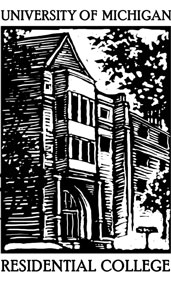A Reflection on Our Final Goodbyes
After having been back in the states for several days now
and getting back into the groove of things and finishing up my last days of
college, I have been thinking a lot back to our final goodbyes with those in
the Vytegra community. I am recollecting how we were inundated with hugs,
handshakes and smiles from our friends from school no. 2 and our program
partners. I found it incredible that such a strong bond could have been made
with people who hardly speak the same language as us, and I know from this
experience that love and friendship truly have no boundaries. I found these
lengthened goodbyes so heartfelt and genuine, and it made me sad that people
don’t behave that way in the United States when saying their final goodbyes to
others without it being superficial. I could see just from how long they took
to part from us how much our presence means to them. I can tell our visit to
Vytegra is that one disruption a year in their tiny, provincial town life that
they must look forward to very much.
What I am looking most forward to now is keeping in touch
with my new Russian friends, and perhaps even getting their addresses so I can
send them letters (I have always thought that writing letters was a much more,
traditional, old-fashioned, and more meaningful means of communication than
simply email or using social media). I have already begun to talk to some of my
new friends, and perhaps now I have a bit more time to get to know their
desires, their opinions, and their plans after high school to understand what
they want out of life. I think what I’ll come to find is my new Russian friends
will most likely want what I want: a stable future, a close group of friends that
can be trusted and confided in, and a place that feels like home. I am so happy
that I was able to connect with this group of people, and I can say that I have
become even more motivated to learn Russian so that I can communicate with them
even further. I think my realizing that my Russian friends and I most likely
want the same things out of life holds a very important implication: no matter
how interconnected the world becomes, no matter how much Russia advances or becomes
modernized, and no matter how quickly the Russian Heartland might wither away
one day …the people that I met are always going to want the same things. And at
that, those things are always simple things. Not fancy cars, flashy clothes or
Ipads. Not anything material. Despite their community being so underfunded,
they never once asked us for anything, in fact they showered US with gifts. All
they wanted from us is friendship and good memories to last them, which is
exactly what I think they received. And it’s what I wanted and received as
well.














